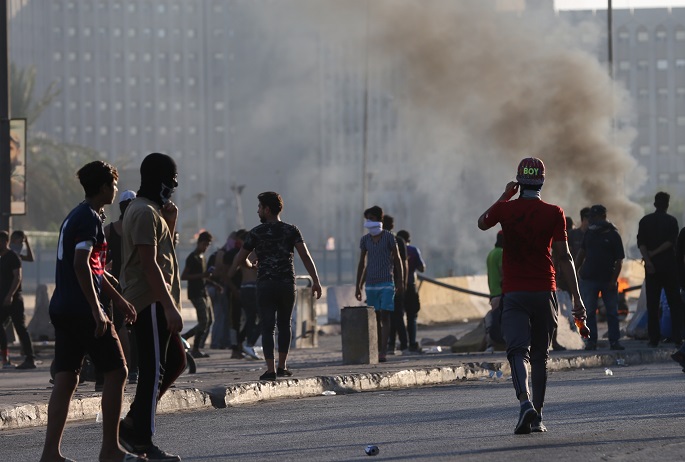Govt reforms bring calm to Iraq after protests
Published : 08 Oct 2019, 22:09
The latest package of reforms presented by the Iraqi government in response to the demands of the angry protesters have de-escalated the turmoil in the country.
Iraq has been the scene of violent protests over living conditions that claimed the lives of more than 100 Iraqis, threatening the crisis-ridden state to be dragged back into violence and disintegration.
The latest protests in central and southern Iraq have posed serious challenge to the government of Iraqi Prime Minister Adel Abdul Mahdi, prompting Iraqi political experts to warn of the dangerous consequences of such threat.
However, the measures taken by the government have eased the tension and life across the country has returned to normal, when Abdul Mahdi announced a package of urgent reforms, including building thousands of subsidized housing units for the poor people, stipends for the unemployed and training programs and loan initiatives for youth.
On Oct. 7, Iraqi President Barham Salih urged protesters to join national dialogue and confirmed that he categorically rejects targeting peaceful demonstrators and security forces as well.
On Oct. 8, there was no protests reported across the country after the Iraqi parliament approved Abdul Mahdi's package reforms, in addition to the committees that were formed by Abdul Mahdi to meet with representatives of the demonstrators face to face in Baghdad and other provinces.
It is not new that Iraqis took to the streets in waves of protests over the country against increasing unemployment, poverty, corruption and lack of basic services.
"Iraqis feel like the government is involved, in a way or another, in every aspect of life and they see that some people are getting richer and living lavishly while average people are totally deprived," Ali al-Musa, a political analyst, told Xinhua.
A year ago, Abdul Mahdi took office as prime minister and he promised to form a government of technocrats and to find a solution to the corruption, but the latest reforms will likely enable him to fulfill his promises to the people.
In the beginning of the protests, Abdul Mahdi told the protesters in a statement that his government has no "magic solutions," and cannot achieve the ambitions and dreams of the public in its first year in office, as it inherited a range of issues, including destroyed infrastructure and unemployment by the years of sectarian strife and war against terrorism that followed the U.S.-led invasion in 2003.
Al-Musa said that if the measures and calls by Abdul Mahdi and Salih are implemented immediately and people touch their seriousness, the anger of the people will be further mitigated and will build trust between the people and their government.
"They (protesters) lack organizational structure, and their protests were motivated by their genuine needs to improve their living. Therefore, some calls by politicians to overthrow Abdul Mahdi is not a solution because it would be hard to form a new government and that will lead to chaos and would enter the country into a cycle of violence, that would spill over the entire Middle East region," al-Musa concluded.
Ibrahim al-Ameri, an Iraqi political analyst and lecturer of politics in Baghdad University, told Xinhua that what Iraq needs now is stability and calmness to rebuild the country.


